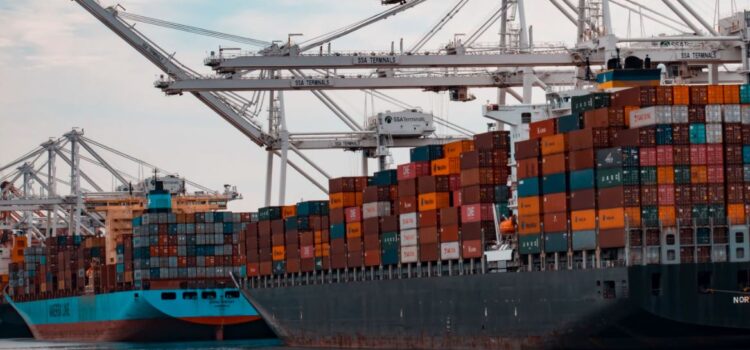

This article is an excerpt from the Shortform summary of "The Federalist Papers" by Alexander Hamilton. Shortform has the world's best summaries of books you should be reading.
Like this article? Sign up for a free trial here .
How did the Constitution support foreign commerce? What is the importance of international trade and commerce?
Foreign commerce is an issue covered by The Federalist Papers. A strong Union could better support international trade and commerce than a divided confederacy.
Read more about foreign commerce and the position expressed in Federalist 11.
Federalist 11: The Need for a Uniform Foreign Commerce Policy
A strong Union, by contrast, would enhance international trade and commerce between the United States and other nations.
Under the Union, the states would not be able to place restrictions on each other’s goods, boosting free trade. Scarcities of a commodity in one state would be remedied by its residents being able to purchase that commodity from another state that had it in abundance.
By enabling the United States to act with a unified commercial policy, the Union would also give the nation greater leverage in its economic relations with other countries and enable it to secure more favorable terms for foreign commerce. For example, if it were acting as a single entity, the United States could credibly threaten to block British access to American markets unless the British government allowed American merchant seamen access to British markets on favorable terms. But in a state of disunion, this would be impossible. European colonial powers would always be able to undercut any of the states or confederacies in trade by playing them against one another.
Customs Duties Inhibit Trade
But if each of the 13 states were independent, they would each be levying their own customs duties. This would be burdensome for merchants and would give strong incentive for evasion. Moreover, the sheer size of the land borders between states, the existence of a common language, and the availability of navigable rivers would make it far too easy for merchants to evade state customs duties. Therefore, even if each state spent extraordinary (and duplicative) resources to crack down on this contraband trade, they would still only apprehend a small number of illegal traders and remain perpetually short of crucial revenue.
By contrast, a strong federal government would only need to patrol goods coming into the country from Europe via the Atlantic Ocean. This would be a much simpler task that could be done with a minimal amount of force and at much less expense. Merchants would thus have to contend with only one customs regime, rather than 13, which would stimulate trade. This stimulation of trade would further enhance revenue for the federal government.

———End of Preview———
Like what you just read? Read the rest of the world's best summary of Alexander Hamilton's "The Federalist Papers" at Shortform .
Here's what you'll find in our full The Federalist Papers summary :
- The genius of the founding fathers in how they designed the United States Constitution
- Why it was critical for the United States to form a union rather than stay separated as colonies
- How Alexander Hamilton anticipated social issues that are still relevant today






